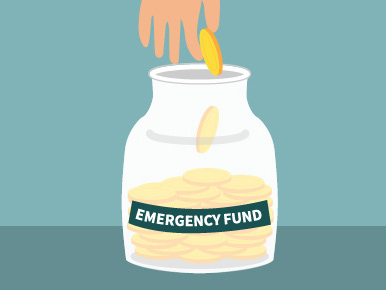With the increasing cost of living, it's natural to look for ways to reduce your expenses. But when it comes to reviewing your insurance, it’s important to remember that it’s not just a cost: it’s a valuable tool to create financial resilience.
So, with that in mind, here we share some food for thought on managing the cost of your insurance, without compromising on coverage.
Review your cover with an expert
A good starting point is to review your insurance plans. If it’s been a while since you last looked at your cover, or your situation has changed in the meantime, we welcome you to contact our friendly LifeDirect insurance advisers at no additional cost to you.
A LifeDirect adviser can help you understand if and how your insurance needs have changed. And they may also be able to help you reduce your premiums without losing key layers of protection. In some cases, for example, there may be optional add-ons that you can comfortably remove without compromising the core coverage you need to financially protect yourself.
Increase your wait period (where cover allows)
Increasing the agreed wait period on your policy is another way to reduce your premiums. This is the amount of time you need to wait before your insurance coverage (for example, income protection) starts paying out.
Generally, all else being equal, the longer the wait period, the lower your premiums will be. However, make sure you talk to a LifeDirect adviser before making any changes: whether or not this option is for you depends on your emergency funds, and how long they can support you in these times of high inflation.
Increase your excess (where cover allows)
Increasing your excess is another option to consider. The excess is the portion of each claim that you pay out of pocket, with the rest being covered by the insurer.
Generally, the higher the excess, the lower your premiums will be (all else being equal). But once again, you need to ensure you can afford to pay the excess in the event of a claim. It’s also important to consider your current health status and the likelihood of needing medical care. If you have a chronic condition that requires ongoing treatment, will you end up paying more out of pocket in the long run?
It's not a case of all or nothing
Knee-jerk reactions to rising costs can be expensive. Giving up your insurance plan can make you vulnerable to significant financial risks. What’s more, you may struggle to get the same level of coverage in the future; for example, any medical conditions you may have developed in the meantime may not be covered.
Happily, as you see, there are options to manage the costs of insurance cover, while maintaining some all-important financial protection.
Here to help
If you’re thinking about the cost of your cover, get in touch. By working with a LifeDirect adviser, you can manage your insurance costs while maintaining the right level of coverage for your needs, goals, and budget.
Give us a call on 0800 800 400, start a Live Chat or fill in our contact form to get in touch.
Disclaimer: Please note that the content provided in this article is intended as an overview and as general information only. While care is taken to ensure accuracy and reliability, the information provided is subject to continuous change and may not reflect current developments or address your situation. Before making any decisions based on the information provided in this article, please use your discretion and seek independent guidance.












